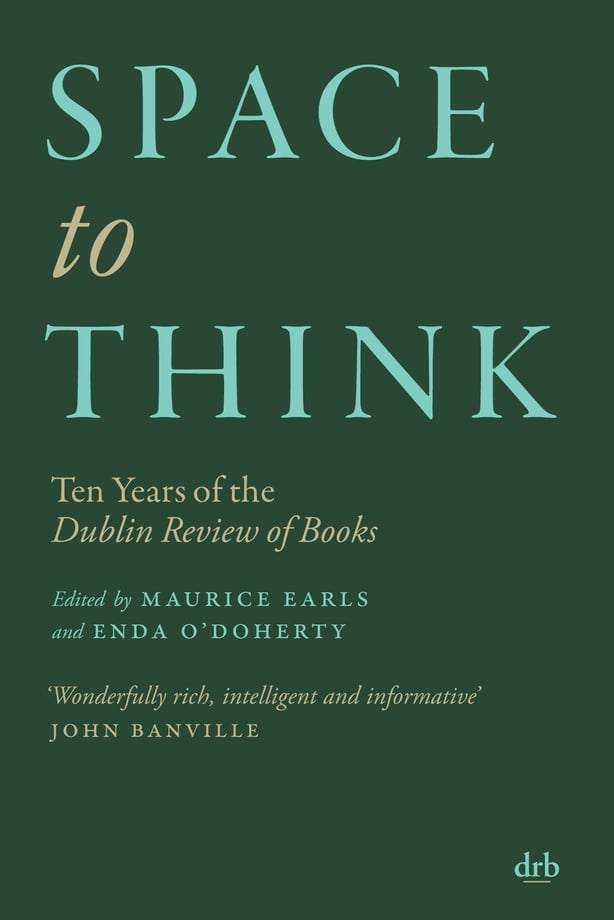Enda O'Doherty, editor of The Dublin Review of Books, celebrates their tenth anniversary and the launch of their new 'Best Of' anthology.
The Dublin Review of Books is celebrating its tenth anniversary with an anthology in book form of some of the best pieces to have appeared in the journal online since 2006. The book, a handsome production of over 500 pages, is called Space to Think, a title which reflects the drb’s commitment to the long-form essay.
“In eighteenth century Ireland,” the book’s introduction argues, “the pamphlet was the chief means by which ideas were elaborated and debated.” In the nineteenth and twentieth centuries that role fell mainly to the great journals of the time, journals which were concerned with the broad question of what Irish society was and where it was going.
But while we must indeed continue to look at ourselves and our society we must also look outwards: “For the Irish, as in varying degrees for other nationalities, thinking about one’s culture ultimately and necessarily involves thinking also about the culture of other peoples. While the degree of engagement may vary, other cultures, especially European cultures, are us.”
This double focus is richly reflected in the selection of essays in Space to Think, which range from pieces on Seamus Heaney, Jonathan Swift and Samuel Beckett to a study of the Ulysses obscenity trials in the US; from the contradictions in George Orwell’s politics to Sartre and de Beauvoir’s existentialist theories and tawdry lifestyles; from Clive James’s marvellous feats of translation, to the American crime novel, to the greatest famine the world has ever known, which occurred after Mao’s so-called ‘Great Leap Forward’ in the 1950s. Among the distinguished authors represented are Lara Marlowe, Terry Eagleton, Catriona Crowe, Denis Donoghue, Eiléan Ní Chuilleanáin and the late Adrian Hardiman.

Almost all of the pieces in the anthology were originally published as book reviews or ‘review-essays’, that is they talk about a book but the authors are given a good deal more space than they would have been in a newspaper for example. In return, they are expected to provide a little more than can be accommodated in that sometimes cramped space: to sketch in more historical or biographical background, to share with the reader the fruits of their own wider reading, to develop an argument. To a considerable degree they are allowed to please themselves in what and how they write; but they are also expected to please, and enlighten, the reader. The overall philosophy is that thinking is important, and clear writing is important. And why can’t we have both together?
The drb formula must be considered to have been successful, at least on its own terms. The review is still going after ten years, and now we have an impressive and handsome collection drawn from it. The drb online continues to be entirely free to the reader.
Space to Think is available in bookshops for €25 and would make an ideal Christmas present.

